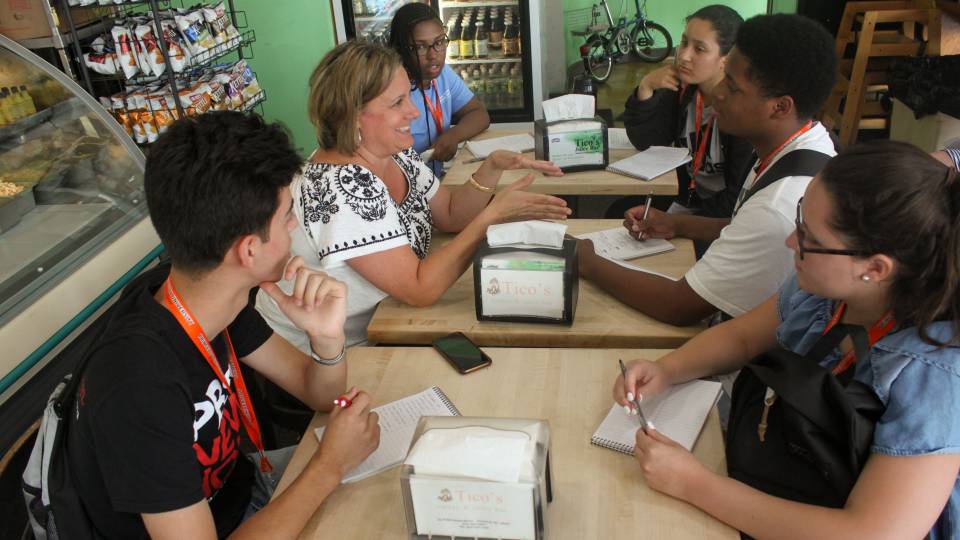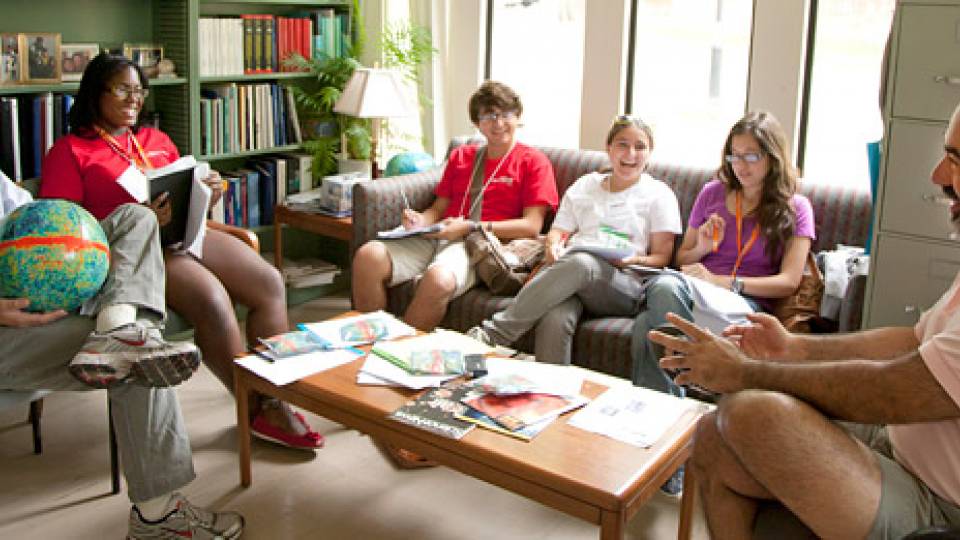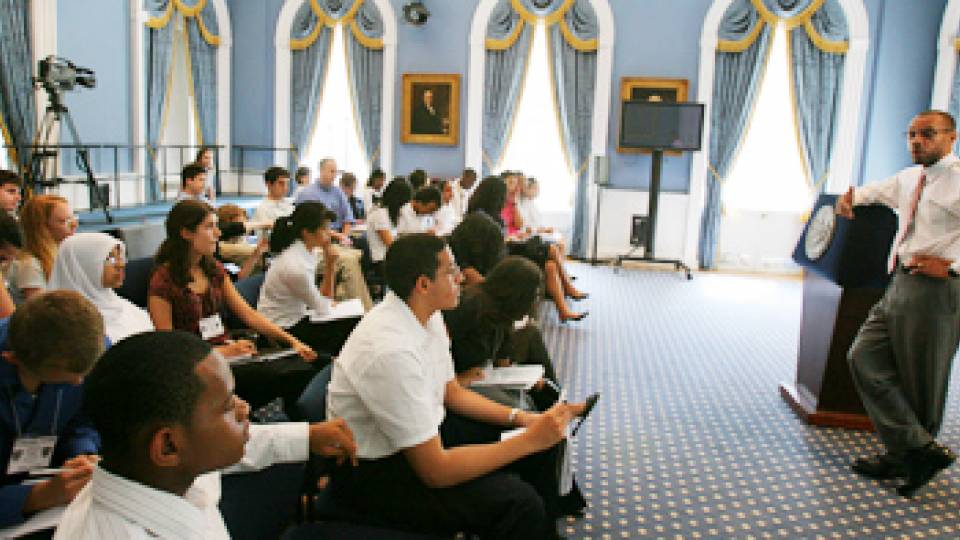A once-fledgling summer journalism camp has grown up.
Born in the summer of 2002, the Daily Princetonian Class of 2001 Summer
Journalism Program has diversified and matured into a working
partnership between its founders and the former high school students
they have helped.
"I came back to share my experiences," said Dotan Johnson, an inaugural
participant in the program who has returned from college to be a
counselor this year. "I'm the first African-American general manager of
the Bowdoin Cable Network, and the (Princetonian) program made me
believe it was possible, especially at a predominantly white college."
Johnson is now a junior at Maine's Bowdoin College and manages its
student-run cable TV station. By coming back to the Princeton program,
he hopes not only to train future journalists like himself, but also to
discuss the college experience with students who may be unfamiliar with
the ins and outs.
"They did so much for me that I came back to help demystify the college
application process for a lot of students who are overwhelmed by it,"
Johnson said.
Johnson has returned with three other program alumni to join current
and former members of The Prince staff on campus this summer. The
program was started by former members of the editorial board of the
University's student-run newspaper to provide training and mentoring to
minority high school students who are interested in journalism.
The program continues into the school year, when mentors help the students with the college application process.
This year, 22 high school students from throughout the Northeast and
Chicago are participating in 10 days of intense journalism instruction
that runs through Aug. 19. Organizers described this year's crop of
would-be journalists as "impressive," evidenced by the rapid-fire
questions they ask while reporting for their assignments.
"Is this a family-owned business?" student Kabria Rogers asked
community barber Jimmy Mack on a recent afternoon. The students were
dispatched into the Princeton community to write feature stories for
the newspaper they will produce at the end of the program. Rogers'
group was assigned a story about Jimmy's Barbershop on John Street.
"Why did you decide to open a barbershop?" she asked.

Julissana Moscoso meanwhile peppered the patrons with questions:
"Explain to me again why you picked this barbershop." "Did you say
consistency?" "It's a good price?"
Shayna Baggats-Porter stopped reporting long enough to explain that she
enjoys the Princetonian program because "I've been writing my whole
life," and she sees the program as a way to parlay her love of writing
into a career.
That's exactly what Princetonian alumnus Richard Just likes to hear.
He said the students' enthusiasm is yet another indication of how the summer program has evolved.
"For the last three years, the overall quality of the students has
increased each year," said Just, a member of the class of 2001 and one
of four Daily Princetonian alumni who founded the summer program.
"Another thing is the increasing number of kids going to good colleges."
Former program participants have gone on to attend Cornell, the
University of Virginia, Williams, Pomona, Barnard and New York
University.
And while the summer initiative began as a program to encourage black
and Latino high-school students to cultivate their interest in
journalism, students from all racial backgrounds now participate.
"But the overall mission is still to help diversity journalism," said
Just, noting that "editorships at the top college newspapers are the
best pipelines into the top internships in journalism."
The program continues to draw its students from urban high schools, and
this year had a record 110 applicants. The program's founders are
looking for resources to run the operation year-round.
Current funding comes from Princetonian alumni fund raising; the
University; the Class of 1969 service fund; and in-kind gifts from such
organizations as the Garden Theatre and the New York Jets, who donate
tickets to movies and games that students write about as part of their
training.
"There's a lot of work with setting it all up, with recruitment, and
then we step in after the fall to help the students write their college
applications," Just said. "We want to put a structure in place in the
next few years where we can step back and let the day-to-day go to
full-time staff."
As they seek to expand and grow, the program's organizers seem to have
embraced the message that founder Michael Koike recently passed along
to the aspiring student journalists:
"Aim high, aim high, aim high."






